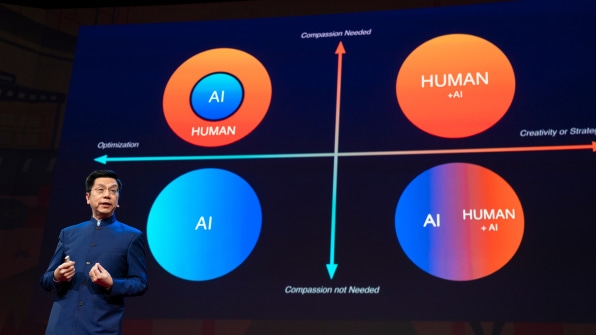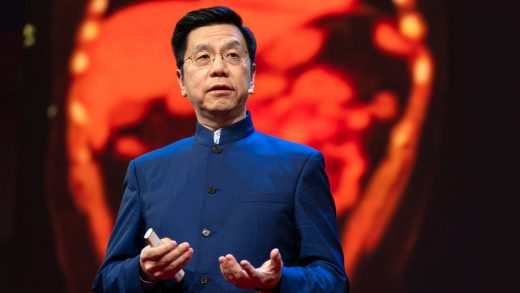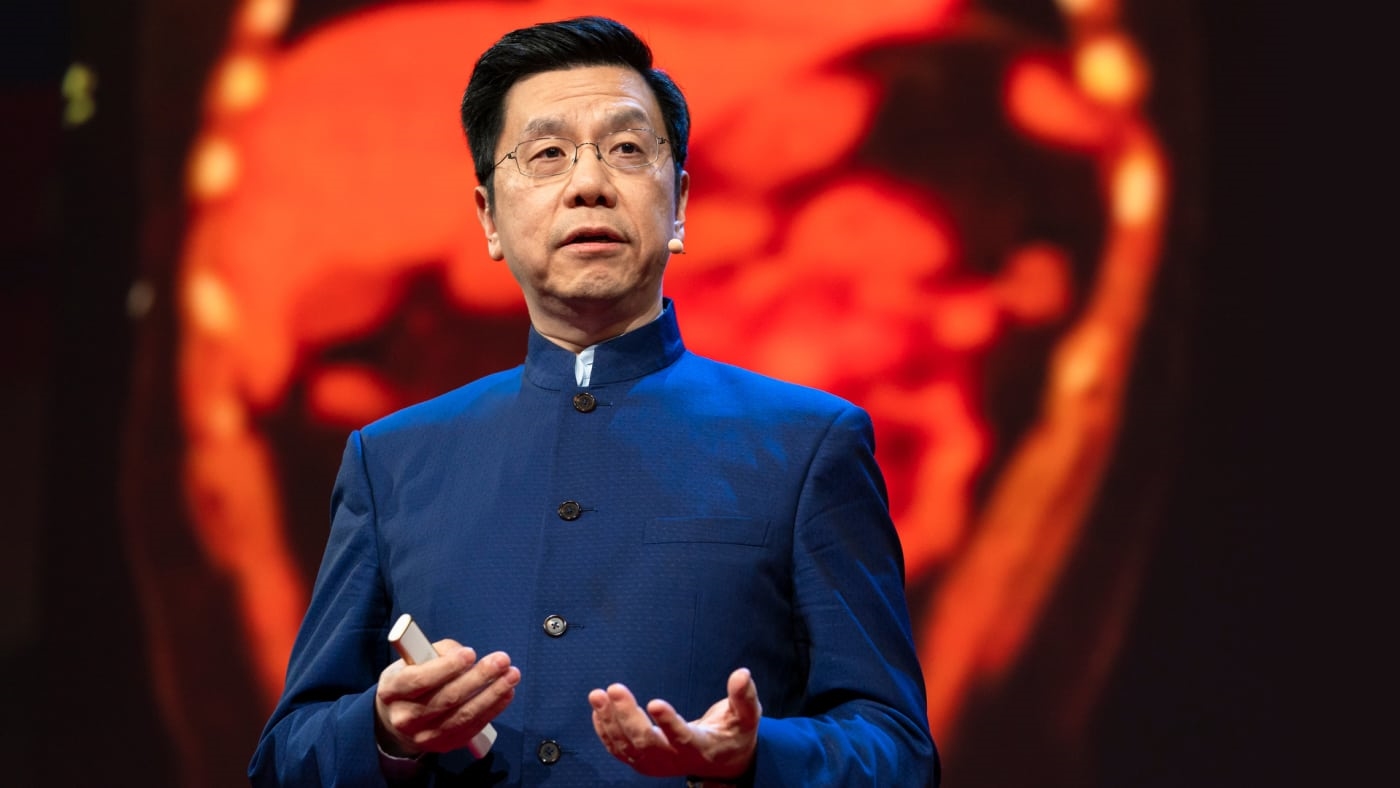Love And Compassion Will Save Us When AI Takes Our Jobs
As artificial intelligence swiftly creeps into the mainstream, it will take over jobs. A lot of them, mostly those that are repetitive and require not a lot of creativity. The first to go will be things like data analysis and retail operations, followed by more complex endeavors like driving.
The advent of AI is often discussed as something of a selective guillotine falling on our employment ecosystem: Either your job is knocked out, or its spared. But Kai-Fu Lee, a former Google, Apple, and Microsoft employee turned venture capitalist with a speciality in artificial intelligence, sees a more humanistic way to integrate AI into our economies.
Lee, during the height of his career, put work above all else, he tells the audience at TED 2018 in Vancouver. He nearly left his wife’s side as she was giving birth to their daughter in order to give a presentation on early AI in 1991, and it wasn’t uncommon for him to work what in China is called “9/9/6”–from 9 am to 9 pm, six days a week. As he worked on artificial intelligence systems, he thought of them as ways to streamline routine work to create more room for innovation, and his job, as one of the early developers of these technologies, was to innovate faster and better to support this future.

That changed when Lee was diagnosed with stage-four lymphoma several years ago. He was given just several months to live, and as he underwent chemotherapy, he read books on how people approached the end of life. “Facing death, nobody regretted that they didn’t work hard enough,” Lee says.
He’s now in remission, but his experience with life-threatening illness caused him to think about work in new ways. “What’s more serious than the loss of jobs is the loss of meaning,” Lee says. “Love is what differentiates us from AI.” And when AI begins to replace routine jobs, Lee says we need to focus our energies on creating more jobs that require love and compassion–jobs like caretakers, teachers, social workers, and tour guides, in addition to those jobs like research analyst, artist, scientist, and CEO that we’ve already largely determined will survive the AI takeover due to the necessity of strategizing and creativity, which deep learning can’t mimic.
It’s a nice idea, and certainly true–we’re facing a shortage of teachers, whose jobs will be crucial in bolstering young peoples’ abilities to participate in modern economies, and caretakers for the elderly will become ever more important as lifespans extend. But the jobs that Lee cited during his talk as replacements for those made redundant by AI are notoriously underpaid, and often lack critical benefits like health care (at least in the United States). If we’re going to follow Lee’s recommendation, we should be sure to do so alongside implementing stronger financial securities for people working these jobs–ideally, in the form of a universal basic income and universal benefits.
Fast Company , Read Full Story
(42)



